A new approach shrinks quantum photonic technology to the size of a Euro coin.
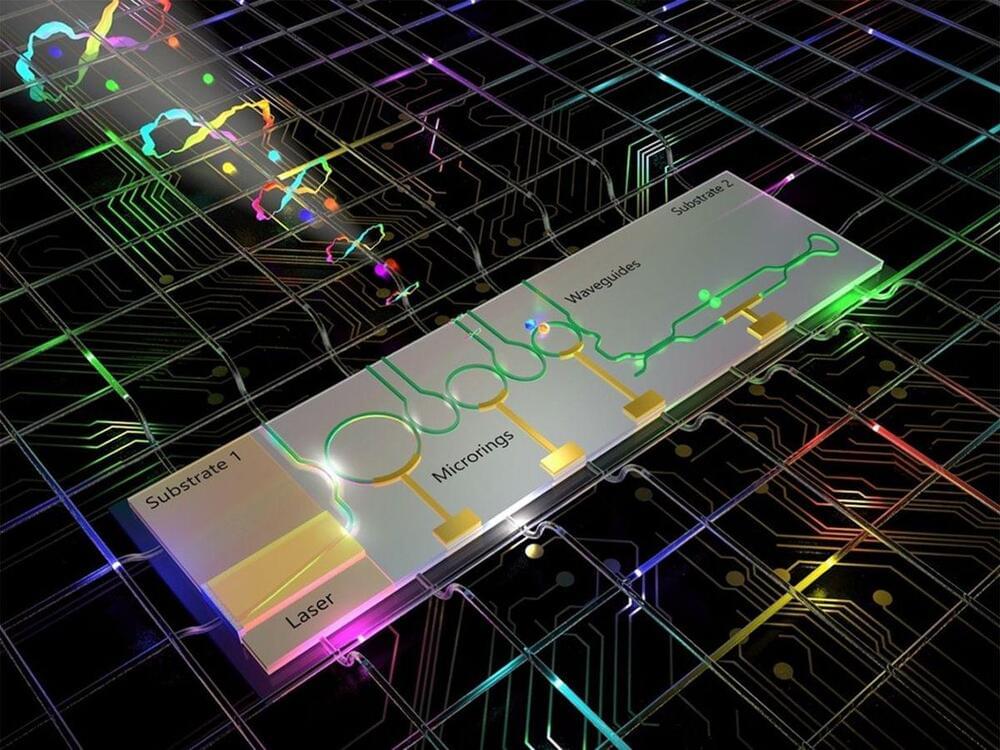

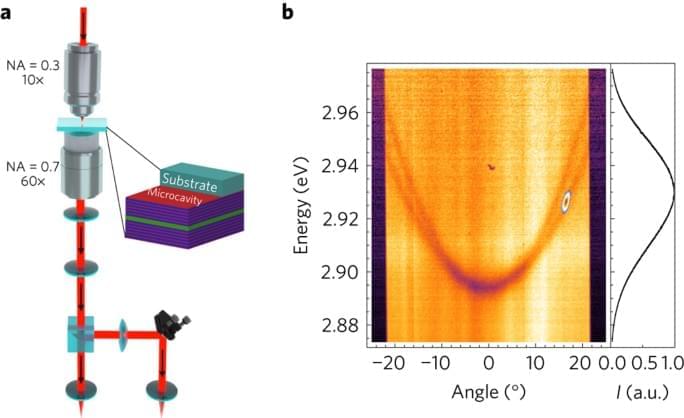
face_with_colon_three year 2017.
First observed in liquid helium below the lambda point, superfluidity manifests itself in a number of fascinating ways. In the superfluid phase, helium can creep up along the walls of a container, boil without bubbles, or even flow without friction around obstacles. As early as 1938, Fritz London suggested a link between superfluidity and Bose–Einstein condensation (BEC)3. Indeed, superfluidity is now known to be related to the finite amount of energy needed to create collective excitations in the quantum liquid4,5,6,7, and the link proposed by London was further evidenced by the observation of superfluidity in ultracold atomic BECs1,8. A quantitative description is given by the Gross–Pitaevskii (GP) equation9,10 (see Methods) and the perturbation theory for elementary excitations developed by Bogoliubov11. First derived for atomic condensates, this theory has since been successfully applied to a variety of systems, and the mathematical framework of the GP equation naturally leads to important analogies between BEC and nonlinear optics12,13,14. Recently, it has been extended to include condensates out of thermal equilibrium, like those composed of interacting photons or bosonic quasiparticles such as microcavity exciton-polaritons and magnons14,15. In particular, for exciton-polaritons, the observation of many-body effects related to condensation and superfluidity such as the excitation of quantized vortices, the formation of metastable currents and the suppression of scattering from potential barriers2,16,17,18,19,20 have shown the rich phenomenology that exists within non-equilibrium condensates. Polaritons are confined to two dimensions and the reduced dimensionality introduces an additional element of interest for the topological ordering mechanism leading to condensation, as recently evidenced in ref. 21. However, until now, such phenomena have mainly been observed in microcavities embedding quantum wells of III–V or II–VI semiconductors. As a result, experiments must be performed at low temperatures (below ∼ 20 K), beyond which excitons autoionize. This is a consequence of the low binding energy typical of Wannier–Mott excitons. Frenkel excitons, which are characteristic of organic semiconductors, possess large binding energies that readily allow for strong light–matter coupling and the formation of polaritons at room temperature. Remarkably, in spite of weaker interactions as compared to inorganic polaritons22, condensation and the spontaneous formation of vortices have also been observed in organic microcavities23,24,25. However, the small polariton–polariton interaction constants, structural inhomogeneity and short lifetimes in these structures have until now prevented the observation of behaviour directly related to the quantum fluid dynamics (such as superfluidity). In this work, we show that superfluidity can indeed be achieved at room temperature and this is, in part, a result of the much larger polariton densities attainable in organic microcavities, which compensate for their weaker nonlinearities.
Our sample consists of an optical microcavity composed of two dielectric mirrors surrounding a thin film of 2,7-Bis[9,9-di(4-methylphenyl)-fluoren-2-yl]-9,9-di(4-methylphenyl)fluorene (TDAF) organic molecules. Light–matter interaction in this system is so strong that it leads to the formation of hybrid light–matter modes (polaritons), with a Rabi energy 2 ΩR ∼ 0.6 eV. A similar structure has been used previously to demonstrate polariton condensation under high-energy non-resonant excitation24. Upon resonant excitation, it allows for the injection and flow of polaritons with a well-defined density, polarization and group velocity.
The experimental configuration is shown in Fig. 1a. The sample is positioned between two microscope objectives to allow for measurements in a transmission geometry while maintaining high spatial resolution. A polariton wavepacket with a chosen wavevector is created by exciting the sample with a linearly polarized 35 fs laser pulse resonant with the lower polariton branch (see Methods). By detecting the reflected or transmitted light using a spectrometer and a charge-coupled device (CCD) camera, energy-resolved space and momentum maps can be acquired. An example of the experimental polariton dispersion under white light illumination is shown in Fig. 1b. The parabolic TE-and TM-polarized lower polariton branches appear as dips in the reflectance spectra. The figure also shows an example of how the laser energy, momentum and polarization can be precisely tuned to excite, in this case, the TE lower polariton branch at a given angle.
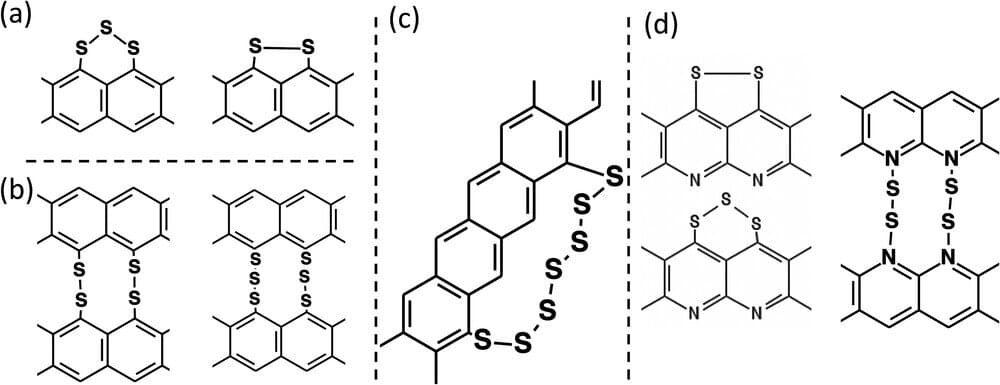
Lithium-ion batteries power our lives.
Because they are lightweight, have high energy density and are rechargeable, the batteries power many products, from laptops and cell phones to electric cars and toothbrushes.
However, current lithium-ion batteries have reached the limit of how much energy they can store. That has researchers looking for more powerful and cheaper alternatives.

To build a workforce that can meet the expected future demand in the quantum sector, we need to train many more quantum-literate educators and marshal support for them.
In 2018 the US federal government passed the National Quantum Initiative Act, a program designed to accelerate the country’s quantum research and development activities. In the next decade, quantum information science and quantum technologies are expected to have a significant impact on the US economy, as well as on that of other countries. To fulfill that promise, the US will need a “quantum-capable” workforce that is conversant with the core aspects of quantum technologies and is large enough to meet the expected demand. But even now, as quantum-career opportunities are just starting to appear, supply falls behind demand; according to a 2022 report, there is currently only around one qualified candidate for every three quantum job openings [1]. We call for education institutions and funding agencies to invest significantly in workforce development efforts to prevent the worsening of this dearth.
Most of today’s jobs in quantum information science and technology (QIST) require detailed knowledge and skills that students typically gain in graduate-level programs [2]. As the quantum industry matures from having a research and development focus toward having a deployment focus, this requirement will likely relax. The change is expected to increase the proportion of QIST jobs compatible with undergraduate-level training. However, 86% of QIST-focused courses currently take place at PhD-granting research institutions [3]. Very few other undergraduate institutions offer opportunities to learn about the subject. To meet the future need, we believe that aspect needs to change with QIST education being incorporated into the curricula at predominantly undergraduate institutions and community colleges in the US. However, adding QIST classes to the curricula at these institutions will be no easy task.
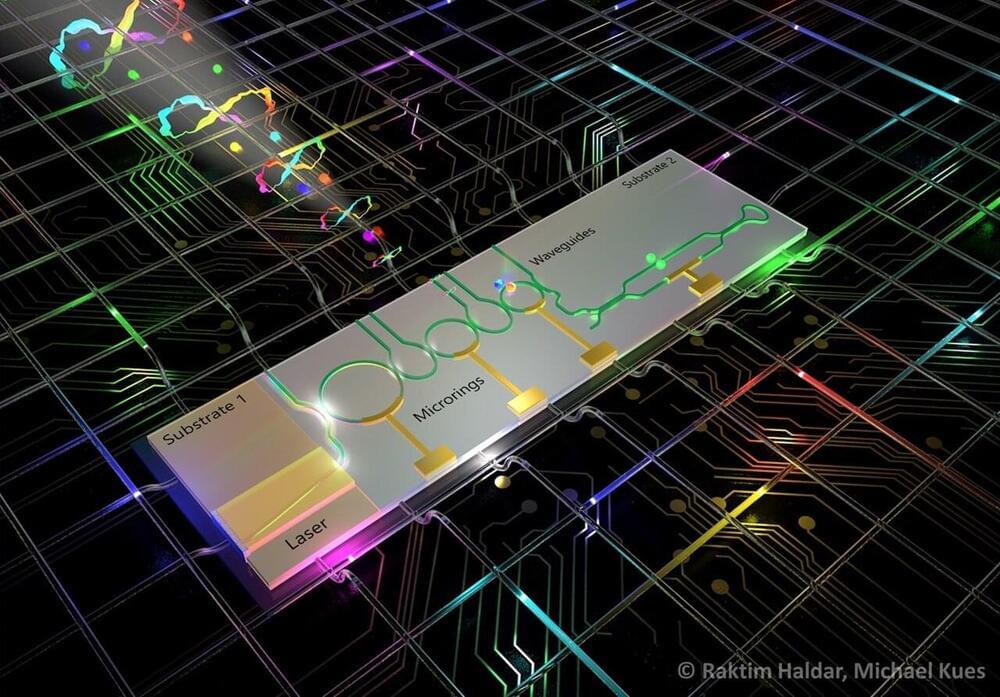
An international team of researchers from Leibniz University Hannover (Germany), the University of Twente (Netherlands), and the start-up company QuiX Quantum has presented an entangled quantum light source fully integrated for the first time on a chip. The results of the study were published in the journal Nature Photonics.
“Our breakthrough allowed us to shrink the source size by a factor of more than 1,000, allowing reproducibility, stability over a longer time, scaling, and potentially mass-production. All these characteristics are required for real-world applications such as quantum processors,” says Prof. Dr. Michael Kues, head of the Institute of Photonics, and board member of the Cluster of Excellence PhoenixD at Leibniz University Hannover.
Quantum bits (qubits) are the basic building blocks of quantum computers and the quantum internet. Quantum light sources generate light quanta (photons) that can be used as quantum bits. On-chip photonics has become a leading platform for processing optical quantum states as it is compact, robust, and allows to accommodate and arrange many elements on a single chip. Here, light is directed on the chip through extremely compact structures, which are used to build photonic quantum computing systems. These are already accessible today through the cloud. Scalably implemented, they could solve tasks that are inaccessible to conventional computers due to their limited computing capacities. This superiority is referred to as quantum advantage.
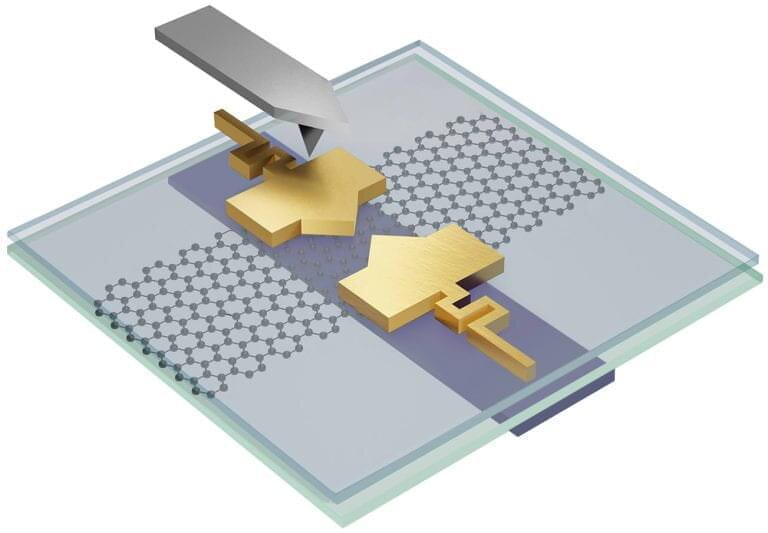
The nanoscale electronic parts in devices like smartphones are solid, static objects that once designed and built cannot transform into anything else. But University of California, Irvine physicists have reported the discovery of nanoscale devices that can transform into many different shapes and sizes even though they exist in solid states.
It’s a finding that could fundamentally change the nature of electronic devices, as well as the way scientists research atomic-scale quantum materials. The study is published in Science Advances.
“What we discovered is that for a particular set of materials, you can make nanoscale electronic devices that aren’t stuck together,” said Javier Sanchez-Yamagishi, an assistant professor of physics & astronomy whose lab performed the new research. “The parts can move, and so that allows us to modify the size and shape of a device after it’s been made.”
The Singularity is a technological event horizon beyond which we cannot see – a moment in future history when exponential progress makes the impossible possible. This video discusses the concept of the Singularity, related technologies including AI, synthetic biology, cybernetics and quantum computing, and their potential implications.
My previous video “AI, Robots & the Future” is here:
https://www.youtube.com/watch?v=iaGIo_Viazs.
The episode on “The Metaverse: A Facebook Fantasy?” is here:
And I have a video on “Nanotechnology 2.0” here:
https://www.youtube.com/watch?v=X14sRtcHJXs.
Links to websites shown in the video are as follows:
Amyris (synthetic biology pioneer):

Human decision-making is relevant for concept formation and cognitive illusions. Cognitive illusions can be explained by quantum probability, while the reason for introducing quantum mechanics is based on ad hoc bounded rationality (BR). Concept formation can be explained in a set-theoretic way, although such explanations have not been extended to cognitive illusions. We naturally expand the idea of BR to incomplete BR and introduce the key notion of nonlocality in cognition without any attempts on quantum theory. We define incomplete bounded rationality and nonlocality as a binary relation, construct a lattice from the relation by using a rough-set technique, and define probability in concept formation. By using probability defined in concept formation, we describe various cognitive illusions, such as the guppy effect, conjunction fallacy, order effect, and so on.

😗 year 2010 :3.
(PhysOrg.com) — Scientists have literally taken a leap into a new era of computing power by making the world’s smallest precision-built transistor — a “quantum dot” of just seven atoms in a single silicon crystal. Despite its incredibly tiny size — a mere four billionths of a metre long — the quantum dot is a functioning electronic device, the world’s first created deliberately by placing individual atoms.
It can be used to regulate and control electrical current flow like a commercial transistor but it represents a key step into a new age of atomic-scale miniaturisation and super-fast, super-powerful computers.
The discovery is reported today in the journal Nature Nanotechnology by a team from the UNSW Centre for Quantum Computer Technology (CQCT) and the University of Wisconsin-Madison.
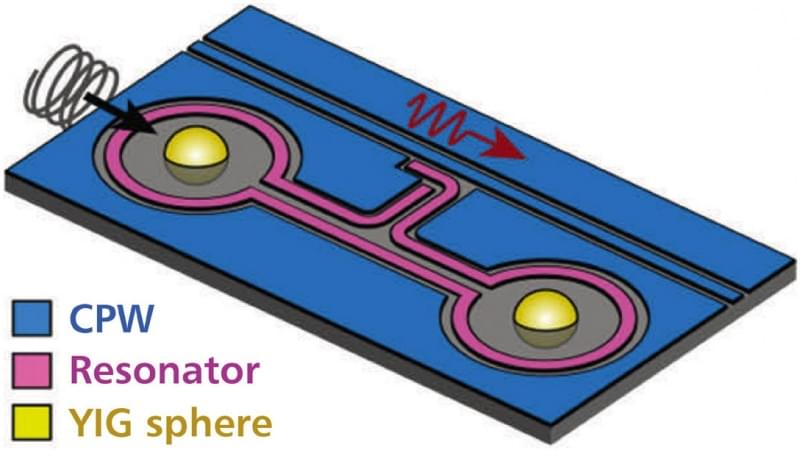
Year 2022 😗
Argonne National Laboratory, Lemont, IL
A team of scientists at the U.S. Department of Energy’s Argonne National Laboratory, have achieved efficient quantum coupling between two distant magnetic devices, which can host a certain type of magnetic excitations called magnons. These excitations happen when an electric current generates a magnetic field. Coupling allows magnons to exchange energy and information. This kind of coupling may be useful for creating new quantum information technology devices.
This instant communication does not require sending a message between magnons limited by the speed of light. It is analogous to what physicists call quantum entanglement. Following on from a 2019 study, the researchers sought to create a system that would allow magnetic excitations to talk to one another at a distance in a superconducting circuit. This would allow the magnons to potentially form the basis of a type of quantum computer. For the basic underpinnings of a viable quantum computer, researchers need the particles to be coupled and stay coupled for a long time.